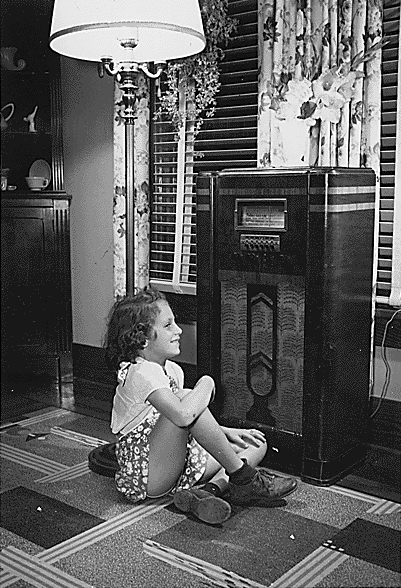Recommended Podcasts

Since the Covid-19 lockdown I have significantly ramped up my listening of podcasts and in the process have been exposed to a lot of great thinkers and interviewers.
I am constantly recommending podcasts and episodes to friends and family, so I figured that I might as well create a list which I can update. If you feel that I should explore a podcast that you like, feel free to contact me via email or tweet and I might just add it to this list!
For each podcast below I write a short snippet of my take followed by its official description.
Current Events

In each weekday episode of The Daily NY Times reporters provide a deep dive analysis of one current event and a brief summary of highlighted topic. During special occasions like political campaigns the provide an additional daily episode to highlight updates.
This is how the news should sound. Twenty minutes a day, five days a week, hosted by Michael Barbaro and powered by New York Times journalism.
My personal favourite quote: This is what else you need to-knowt’day.
Science
Shortwave is a great way to get updated on the latest advances in science. Maddie Sofia and her team present 10-15 minute lighthearted dives into interesting topics.
New discoveries, everyday mysteries, and the science behind the headlines — all in about 10 minutes, every weekday. It’s science for everyone, using a lot of creativity and a little humor. Join host Maddie Sofia for science on a different wavelength.
Life & Philosopy
- In the Artificial Intelligence podcast Lex Fridman interviews some of the most amazing brains on the planet to discuss anything from their life’s work to the future of society. Artificial Intelligence is the main narrative, but many stimulating digressions into life and philosopy. These sessions are normally over and hour and well worth finding some quite time to listen to.
Artificial Intelligence podcast (AI podcast) is a series of conversations about technology, science, and the human condition hosted by Lex Fridman.
My take: When an episode starts, all you here is Lex’s monotonic voice (think radio DJ in Reservoir Dogs). That said, he does a very good job at picking some of the best brains in the world, although his theme of intelligent alien life forms and how intelligent we can make machines can be a bit repetitive.
- In The Portal Eric Weinstein and his brilliant guests go into deep dives about life, science and business.
The Portal is a journey of discovery. It is wide ranging and deep diving discussions with distinguished guests from the realms of science, culture and business. Join us as we seek portals that will carry us through the impossible- and beyond.
My take: Eric constantly challenges the norms in a very thoughtful manner. He despises the academic institutes and any organization that stagnates social progress. As a physicist by training, I was very interested to learn from him his point of view that theoretical physicists haven’t really pushed the needle since the 1970’s, where, e.g, too much brain poweer has been focused on dead end ideas like String Theory.
- In Against The Rules one of my favourite modern authors, Michael Lewis (Moneyball, The Big Short, The Undoing Project), explores the growing importance in every day lives of referees (Season 1) and coaches (current Season 2).
Michael Lewis takes a searing look at what’s happened to fairness. It feels like there’s less of it every day—whether it comes to lending practices, college admissions, professional sports, or psychological well-being. Who are the people trying to level the playing field, and are they making an impact? Lewis interviews referees (Season 1) and coaches (Season 2) from many walks of life, bringing his trademark insight and wry humor to their stories of (in)equality today.
My tip: it’s worth getting over the awkwardness of how Michael speaks because he is so brilliant in putting a story together. With time he will surely improve his audio skills!
Economics

Freakonomics Radio is a spinoff from the highly acclaimed book series. Stephen Dubner, in essense, revolutionised the art of deep dive analysis and story telling using the medium of podcasting.
Discover the hidden side of everything with Stephen J. Dubner, co-author of the Freakonomics book series by the same name. Each week, Freakonomics Radio tells you things you always thought you knew (but didn’t) and things you never thought you wanted to know (but do) — from the economics of sleep to how to become great at just about anything. Dubner speaks with Nobel laureates and provocateurs, intellectuals and entrepreneurs, and various other underachievers.
This is by far my favourite podcast. I was fortunate to see them record live in London in September of 2019.
Story Telling

How I Built This are one-on-one sessions between NPR’s Guy Raz and founders of well known brands. He explores with them the story of their succes and lessons learned.
Guy Raz dives into the stories behind some of the world’s best known companies. How I Built This weaves a narrative journey about innovators, entrepreneurs and idealists—and the movements they built.
I also like the fact that Guy ends the show by interviews and promotes new innovator and their products.

In the weekly hour long This American Life Ira Glass and host journalists tell incredible stories that are weaved by a common theme.
A weekly public radio program and podcast. Each week we choose a theme and put together different kinds of stories on that theme.
My tip: It’s worth listening the credits all the way through to the end because they will take a sound snippet from the show and put it hilariously out of context.

In Revisionist History author and journalist Malcolm Gladwell reaxamines historical events and challenges “common knowledge”.
Because sometimes the past deserves a second chance. Revisionist History is Malcolm Gladwell’s journey through the overlooked and the misunderstood. Every episode re-examines something from the past—an event, a person, an idea, even a song—and asks whether we got it right the first time.
TED Radio Hour is another brain child of Guy Raz, in which each weekly show has a theme and the presenter discusses with TED speakers about their topic of expertise.
Exploring the biggest questions of our time with the help of the world’s greatest thinkers. Host Manoush Zomorodi inspires us to learn more about the world, our communities, and most importantly, ourselves.
My take: I loved the show during Guy’s time, but I feel that Masnoush has been changing it not for the better. In the first few episodes that I heard it felt that she focussed too much on herself.